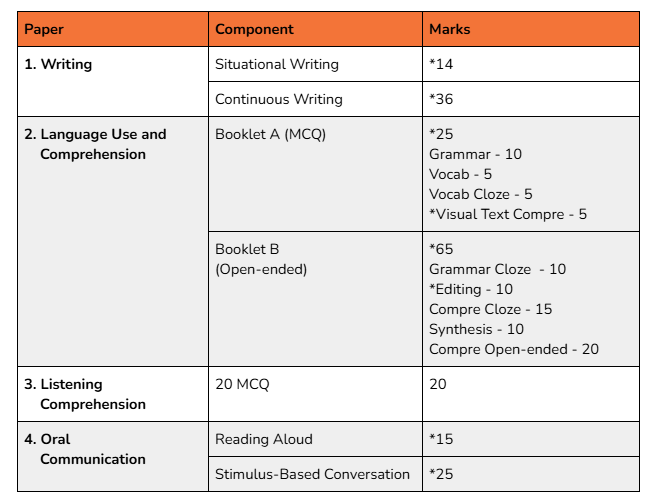"The earlier a child starts learning English, the easier it becomes for them to absorb, understand, and use it naturally."

English has become a global language used for communication, education, travel, and work all around the world. Being able to speak and understand English opens many doors and makes daily life smoother in countless ways. For families in countries where English isn’t the main language, putting in a bit of extra effort to learn it can make a lasting difference in how confidently a child can communicate and explore the world.
That’s why it’s best to start early and help your child build familiarity with English while their brain is still in the stage of easily absorbing new information. In this article, we’ll share simple and practical ways parents can support English learning at home. We’ll also include useful educational resources that can help your child master English faster, so keep reading until the end to get all the tips and ideas you can use right away.
1. Make English Part of Everyday Talk

Speaking English at home every now and then can make a big difference in how naturally your child learns the language. When English becomes part of your daily conversations during meals, playtime, or simple chats, it starts to feel less like studying and more like just another part of family life. The brain picks up listening and speaking skills more easily this way, turning language learning into a natural daily routine.
You don’t have to worry about your child forgetting their mother tongue either. It’s all about balance. Keep using your home language while mixing in some English here and there. In fact, saying something in English and then repeating it in your mother tongue helps your child connect both languages. Kids usually focus on the language they understand best and naturally “tune out” the rest, so there’s no need to fear confusion, their brains are built to handle it.
Talking in English at home helps your child become more fluent and confident. It also strengthens their thinking skills, things like problem-solving and critical thinking, which can lead to better performance at school. Over time, this habit lays a solid foundation for their future. Being comfortable with English can open doors for study, work, and travel opportunities, while also helping them grow into clear communicators who are comfortable navigating different cultures.
2. Read Bedtime Storybooks

Start reading English storybooks to your child as early as you can. When children are very young, they’re simply focused on the comforting routine of bedtime stories. That makes this quiet time before sleep a wonderful chance to add a little extra English practice into their day without it feeling like a lesson.
Storybooks offer a fun and natural way to build your child’s English skills. The language used in children’s books is often simple, rhythmic, and repetitive, which helps kids absorb new words and sentence patterns easily. Illustrated pages also make the meaning clear, encouraging your child to ask questions about the characters and plot. Over time, this not only widens their vocabulary but also nurtures their curiosity and love for learning through stories.
3. Play Audiobooks

There are times when you might be too busy to sit down and read a story to your child and that’s completely okay. On those days, you can still keep their English learning going by playing an audiobook instead. Audiobooks are an easy way to surround your child with English, even when you’re cooking, driving, or getting ready for bed.
There are plenty of platforms, like YouTube or Spotify, that offer hours of children’s audiobooks. You can start with simple English stories to help your child follow along easily. Some good options include The Very Hungry Caterpillar, Brown Bear, Brown Bear, What Do You See?, Curious George, Peppa Pig stories, or Frog and Toad Are Friends. These stories use clear, repetitive language that helps children understand and remember new words naturally.
You can also make listening more interactive. Encourage your child to annotate or draw small notes about what they hear, maybe writing down new words, sketching a favorite scene, or marking parts they didn’t understand. Later, take a few minutes to discuss the story together. Ask what they liked, what they learned, or what they found funny. This keeps the activity engaging and helps your child connect listening with thinking and speaking in English.
4. Sing Songs Together

Singing English songs together is one of the most enjoyable ways to help your child learn the language. Music and rhyme naturally support children in using full sentences, intonation, pitch, and rhythm. These are things that can be hard to teach directly, but songs make them easy and fun. When you sing together, your child absorbs these patterns without even realizing they’re learning.
Songs also introduce children to surprisingly complex grammar and sentence structures. Take a simple tune like “The Wheels on the Bus” it uses repetition and variations that teach how actions can change within a sentence (“The wipers on the bus go swish, swish, swish”). Another great one is “Old MacDonald Had a Farm,” which naturally exposes children to verb changes (“had,” “goes,” “moo”) and sentence rhythm in a fun, engaging way. Even “Head, Shoulders, Knees, and Toes” helps them follow and understand word order while connecting language to actions.
The beauty of songs is that they remove pressure. The melody, rhythm, and familiar words create a safe and joyful context for children to experiment with English. They sing along, imitate sounds, and learn grammar and pronunciation effortlessly.
5. Set Your Devices

Set your home devices, such as the computer, tablet, smart TV, or phone, to use English. This small change helps your child see and hear English every day without making it feel like a lesson. Most gadgets allow you to switch the language, and choosing English gives your child regular, natural exposure to useful words and phrases.
Since children learn best through repetition, they’ll soon start recognizing common on-screen words like “password,” “sign up,” “log in,” “settings,” or “game over.” These simple phrases might seem minor, but they build comfort and familiarity with English vocabulary.
Each time your child watches you use technology in English or explores it themselves, they’re learning the language in a real, everyday way, one that feels effortless and practical.
6. Create an English Environment at Home

Create an immersive environment at home by placing English labels on everyday items. Label things like the door, table, fridge, and mirror so your child sees English words around them every day. This helps them connect vocabulary with real objects in a simple, natural way. You can make it more engaging by asking your child to help write or decorate the labels together.
You can also set up a small “English corner” in your home. Choose a spot where you keep English books, flashcards, and games. Add a few fun things like a whiteboard, drawing tools, or story CDs to make it a place your child enjoys spending time in.
7. Encourage Writing

Encouraging your child to write in English helps them express their thoughts and build confidence with the language. You can start by giving them a small journal for daily writing activities. Ask them to write about what they did that day, something fun they learned, or even a story they make up. The idea is to help them see writing as a natural way to share their ideas in English.
For younger children, don’t worry too much about grammar or spelling, those skills will develop over time. What matters most is helping them enjoy writing and use English creatively. The goal is to build the habit of thinking and communicating in English, not to have flawless sentences. Over time, this simple practice can improve vocabulary, sentence structure, and confidence in using the language both in writing and speaking.
8. Learn Through Games

Making English learning fun and interactive helps your child stay engaged and excited about using the language. One of the best ways to do this is through games. Try using board games, flashcards, or word games like Scrabble, I Spy, or Simon Says to practice new vocabulary and language skills.
You can also make learning interactive by adding simple activities to your daily routine. Use fridge magnets to spell out words together, act out new words in a quick game of charades, or even make your own mini challenges.
9. Watch Films/TV Shows Together

Watching English films or TV shows together is a fun and effective way to help your child learn the language. When you watch, turn on English subtitles. This helps your child connect spoken words with how they’re written, improving both listening and reading skills at the same time.
Children tend to pick up more words and phrases when using English subtitles instead of subtitles in their native language or none at all. As they get more comfortable, they’ll start to understand more just by listening and may not need subtitles anymore. When they can enjoy English shows without help, it’s a clear sign that their understanding and language ability are growing.
10. Provide Access to Quality English Educational Resources

Making English learning accessible at home starts with using the right resources and technology. When used wisely, technology can open up many ways for children to strengthen their English skills beyond the classroom. That’s why Curio.sg provides quality educational resources designed specifically to help students improve in English. Our lessons are focused entirely on developing strong English foundations, so parents can be confident that their child is learning with purpose and direction.
At Curio.sg, we offer fully online English tuition for Primary 6 and Secondary 1, 2, and 3 students in Singapore. Our goal is to help every learner build solid academic skills in English through engaging lessons and expert guidance. By giving your child access to our online learning platform, you’re helping them master English step by step, anytime, anywhere. With Curio.sg, English learning becomes easier, more enjoyable, and truly accessible for every student.










































































































